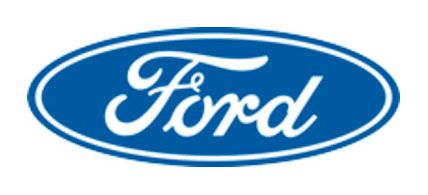
Pressemeddelelse -
Åbent brev fra Odell, Executive Vice President, Ford Motor Company
- “The European Single Market has been fundamental to the strength of the European economy over many decades, helping to generate wealth and jobs to levels that would have been inconceivable without it,” says Stephen Odell, executive vice president and president of Europe, Middle East and Africa, Ford Motor Company
- “A strong and globally-competitive European auto industry is a critical driver of the Single Market, creating wealth, driving innovation and sustaining jobs… Jobs, competitiveness, and growth must be the driving force behind EU policy”
- “There needs to be a new approach to EU law-making – one that truly embraces the principle of smart regulation… if there are to be new standards, let’s ensure that their impact on competitiveness is properly and independently assessed”
- “A comprehensive trade deal between the EU and US would bring huge potential benefits for growth, jobs and consumers”
- “Trade deals must not only be free but fair as well. The proposed agreement between the EU and Japan is an example of an unbalanced deal… and risks the loss of many thousands of European jobs.”
- “We need more concerted, pan-European
leadership and action with all stakeholders working together to ensure that the
vision of a more competitive Europe is translated into reality”
- “Today is a critical time for all
stakeholders in the European economy to show their courage and determination…
We therefore call on political decision-makers across the EU and in the new
Commission, and business and union leaders, to commit to a stronger and more
competitive auto industry and industrial base in Europe that will generate jobs
and create wealth both for today and for the generations to come.“
COLOGNE,
Germany, July 10, 2014 – Stephen Odell, executive vice president and president of Europe, Middle East and
Africa, Ford Motor Company, is sending an open letter to political
decision-makers and other key stakeholders across the European Union calling
for concerted action to safeguard jobs, promote economic growth, and increase
competitiveness.
Mr. Odell considers the establishment of the new European Commission in the coming weeks as an opportunity to commit to a stronger and more competitive auto industry and industrial base in Europe in the face of growing global competition.
The full text of Mr. Odell’s letter follows:
Letter to Editors
It has been encouraging to see EU leaders respond to the recent elections with a clear commitment to growth, jobs and competitiveness. Turning this objective into reality is the real challenge we all now face.
The European Single Market has been fundamental to the strength of the European economy over many decades, helping to generate wealth and jobs to levels that would have been inconceivable without it. The Single Market has provided for the free movement of goods, services and people; a common regulatory framework to help sustain our businesses; and the scale required to negotiate global trading opportunities. These are all benefits that we at Ford fully support, and believe should be protected and advanced.
It also is true that a strong and globally-competitive European auto industry is a critical driver of the Single Market, creating wealth, driving innovation and sustaining jobs. The European auto industry employs nearly 13 million people, and is the EU’s largest investor in R&D.
But the on-going economic context is challenging. Economic recovery is weak and gradual, unemployment remains stubbornly high, and Europe faces a growing and acute economic challenge from other global regions.
In this context, I believe we will only deliver the full potential benefits of the Single Market if we set a genuinely new course for Europe.
First – and most crucially – jobs, competitiveness, and growth must be the driving force behind EU policy. Whenever a new piece of legislation or trade deal is considered, the test must be to consider it in the context of how it can benefit the European economy and whether it will support increased employment, improved growth, and enhanced competitiveness. That mind-set must be driven from the top by the new leadership in the EU Commission and Parliament, and fully supported by all Member States.
Second, there needs to be a new approach to EU law-making – one that truly embraces the principles of smart regulation. The auto industry is in the vanguard of technology and innovation in Europe and we are proud of the world-leading environmental and safety standards we set – and of the high-value jobs we create in these cutting-edge areas of R&D. But if there are to be new standards, let’s ensure that their impact on competitiveness is properly and independently assessed. As EU President Barroso stated himself, sometimes it is better for the EU to do less.
Third, we need to embrace opportunities for growth by actively pursuing fair and balanced trade agreements. Support for free trade is part of Ford’s DNA. More than 50 percent of Ford production globally is traded, and our business is dependent upon the ability to import and export vehicles and components freely.
A comprehensive trade deal between the EU and US, for example, would bring huge potential benefits for growth, jobs and consumers and we need to maintain strong momentum towards an agreement.
Trade deals must not only be free but also fair. The proposed agreement between the EU and Japan is an example of an unbalanced deal, offering unrestricted access to the EU market without ensuring Japanese market liberalization. This exposes the automotive industry to unfair competition subsidized by a deliberately weakened Japanese currency and risks the loss of many thousands of European jobs. This follows the EU-Korea free-trade agreement, concluded three years ago. This agreement has fully opened the European market to our Korean competitors but not opened the Korean market to European volume producers – they are still kept at bay by ever new non-tariff barriers.
Europe exists in an increasingly competitive global environment. Some European businesses, including Ford, have made tough decisions in recent years to enhance the competitive position of our European operations. But we need more concerted, pan-European leadership and action with all stakeholders working together to ensure that the vision of a more competitive Europe is translated into reality, and that the European Single Market – which we have strongly supported over the years – fulfils its true potential.
Ford remains fully committed to its operations and investments in Europe – as we have done for well over 100 years. But we also believe that just as when the Single Market was first created, today is a critical time for all stakeholders in the European economy to show their courage and determination.
We therefore call on political decision-makers across the EU and in the new Commission, and business and union leaders, to commit to a stronger and more competitive auto industry and industrial base in Europe that will generate jobs and create wealth both for today and for the generations to come.
Stephen
Odell
Executive vice president and president of Europe, Middle East
and Africa, Ford Motor Company
# # #
Contact: John Gardiner, Ford of Europe
+49 (0)
221 901 9985 or +49 (0) 152 0934 1079
jgardin2@ford.com
# # #
Related links
Emner
Kategorier
Ford of Europe is responsible for producing, selling and servicing Ford brand vehicles in 50 individual markets and employs approximately 50,000 employees at its wholly owned facilities and approximately 69,000 people when joint ventures and unconsolidated businesses are included. In addition to Ford Motor Credit Company, Ford Europe operations include Ford Customer Service Division and 24 manufacturing facilities (13 wholly owned or consolidated joint venture facilities and 11 unconsolidated joint venture facilities). The first Ford cars were shipped to Europe in 1903 – the same year Ford Motor Company was founded. European production started in 1911.
About Ford Motor Company
Ford Motor Company, a global automotive industry leader based in Dearborn, Mich., manufactures or distributes automobiles across six continents. With about 183,000 employees and 65 plants worldwide, the company’s automotive brands include Ford and Lincoln. The company provides financial services through Ford Motor Credit Company. For more information regarding Ford and its products worldwide, please visit www.corporate.ford.com.

